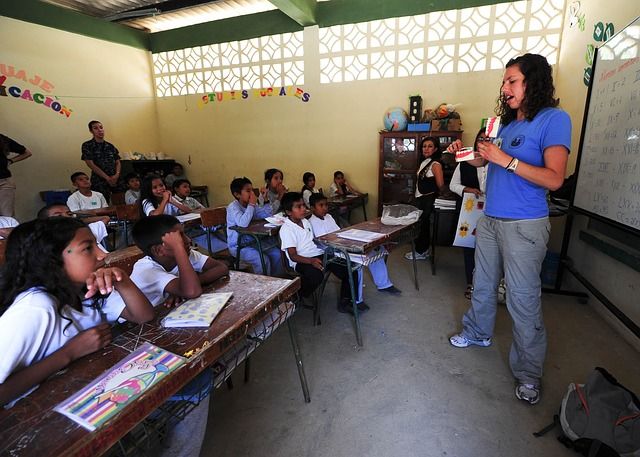
Researchers agree that the most important thing schools can do to promote learning is to provide students with a high-quality teacher. In developing countries, student achievement is low, and one in every four teachers is unqualified—has not received formal training before entering teaching. Increasing the presence of certified teachers from their low base therefore seems an obvious way to improve education quality in developing countries. Indeed, among the Sustainable Development Goals (SGDs) adopted by the United Nations for 2030 is a target to “substantially increase the supply of qualified teachers.” Education policy reflects this priority, with certified teachers earning up to five times their uncertified counterparts and more than half of education spending dedicated to certified teacher salaries in most poor countries.
Yet despite these efforts to upgrade teacher qualifications, there is no credible evidence that such qualifications increase student performance. The best available evidence—based on randomized control trials or natural experiments that distinguish the presence of qualified teachers from other confounding factors—finds no relationship between pre-service teacher training or certification and student learning. In fact, policies in The Gambia and Indonesia went a step further, pairing recruitment of certified teachers with salary increases of 30–100%, but still did not improve test scores. Furthermore, experiments with hiring contract teachers, who are typically uncertified and earn much less than qualified teachers, resulted in learning gains across several countries.
Why the disconnect? One clue might lie in the content and duration of most teacher certification programs, which often last several years and focus on academic theory. By contrast, in-service training conducted after teachers have already been on the job improves student learning under the right conditions, such as focusing on a specific subject and encouraging teachers to practice new techniques. And many contract teachers have close ties to the local community, which may provide an advantage regardless of certification status.
How should policymakers in developing countries respond? Scrapping teacher certification programs is likely a bad idea. After all, providing pre-service training is unlikely to reduce a teacher’s quality. Moreover, in developing countries certification often distinguishes whether a teacher has attended university or not, therefore providing students with important role models. Switching completely to contract teachers, even if feasible, would also be inadvisable. Studies of contract teachers have found them most effective when hired through small-scale programs run by well-managed non-governmental organizations, not through large-scale public programs.
Instead, education policy should focus on making pre-service training and certification more effective. First, emulate successful practices used by in-service training programs. Second, reposition certification as one point of continuous professional development, not merely a one-time event. Finally, install clear and transparent incentives for career advancement based on performance, not merely formal qualifications and experience. Such reforms would help to support and retain the most talented among the present teaching corps, as well as to attract bright and ambitious graduates to the profession. Students throughout the developing world would benefit.
© Todd Pugatch
Read Todd Pugatch’s IZA World of Labor article “Is teacher certification an effective tool for developing countries?”
Please note:
We recognize that IZA World of Labor articles may prompt discussion and possibly controversy. Opinion pieces, such as the one above, capture ideas and debates concisely, and anchor them with real-world examples. Opinions stated here do not necessarily reflect those of the IZA.